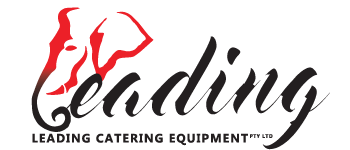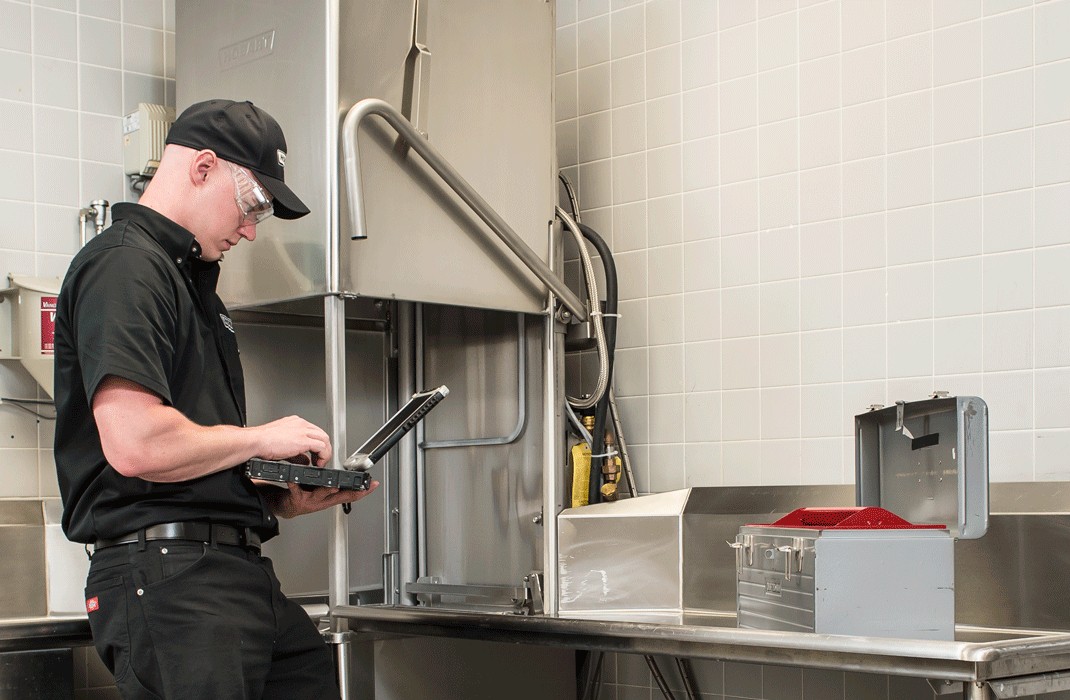Commercial kitchen equipment is a crucial component of any food service business. When something is not right, it can result in substantial disruptions. Troubleshooting common equipment problems can save time and money and often allows for a quick fix without needing professional repair services. Here’s a comprehensive guide to help you identify and resolve common issues with your commercial kitchen equipment.
Keep your products perfectly chilled and beautifully displayed with our sleek commercial display fridges. Click on this link to learn more.
Refrigeration Units
Common Issues:
- Temperature Fluctuations: Inconsistent temperatures can lead to spoiled food.
- Unnecessary Frost Accumulation: Frost can choke vents and reduce performance.
- Unusual Sounds: Strange noises can signal a mechanical problem.
Troubleshooting Steps:
- Look at Temperature Settings: Confirm that the thermostat is set properly and hasn’t been accidentally changed.
- Clean Condenser Coils: Dirty coils can result in the unit to overheat. Wipe them regularly to maintain efficiency.
- Inspect Door Seals: Damaged or worn seals can cause air leaks. Replace them if they’re not sealing correctly.
- Defrost the Unit: If there is excessive frost buildup, manually defrost it. Ensure the automatic defrost function is working correctly.
- Listen for Sounds: Identify the source of unusual noises from the product sourced from top commercial kitchen equipment suppliers. It could be a loose fan blade, a faulty compressor, or something caught in the motor.
Commercial Ovens
Common Issues:
- Uneven Cooking: Unequal heat allocation can result in undercooked or overprepared food.
- Oven Not Heating: The stove fails to attain the ideal temperature.
- Door Issues: The door doesn’t close properly or loses heat.
Troubleshooting Steps:
- Check Heating Elements: Ensure the heating elements are functioning and not burnt out.
- Calibrate the Thermostat: If the oven isn’t heating properly, the thermostat might need calibration or replacement.
- Inspect Door Gaskets: Worn or damaged gaskets can cause heat loss. Change them to guarantee a proper seal.
- Clean the Oven: Built-up grease and debris can affect performance. Regular maintenance can prevent many issues.
Commercial Dishwashers
Common Issues:
- Dishes Not Getting Clean: Residue and spots remain on dishes after a wash cycle.
- Water Leaks: Water pooling around the base of the dishwasher.
- Cycle Issues: The dishwasher procured from leading commercial kitchen equipment dealers, like LCE, doesn’t complete cycles or takes too long.
Troubleshooting Steps:
- Check Spray Arms: Confirm that spray arms are not choked and can rotate easily.
- Inspect Filters: Dirty filters can prevent proper maintenance. Clean or replace filters regularly.
- Examine Door Seals: Leaks can occur if door seals are worn or damaged. Replace seals if necessary.
- Check Water Temperature: Ensure the water heater is functioning correctly. Hot water is essential for efficient rinsing.
- Run Diagnostic Cycles: Many commercial dishwashers have built-in diagnostics to identify specific issues.
Commercial Fryers
Common Issues:
- Oil Not Heating: The fryer doesn’t reach the desired temperature.
- Oil Degradation: The oil breaks down quickly, affecting food quality.
- Ignition Problems: The fryer doesn’t ignite or has intermittent ignition issues.
Troubleshooting Steps:
- Check the Thermostat: Check whether the thermostat is fixed properly and working.
- Inspect Heating Elements: Faulty or broken elements of the product procured from leading commercial kitchen equipment manufacturers need to be replaced.
- Change the Oil: Regularly filter and replace the oil to maintain quality.
- Clean the Burner: For gas fryers, ensure the burner is clean and debris-free.
- Check Gas Supply: Confirm that the gas supply is constant and there are no leaks.
Commercial Mixers
Common Issues:
- Mixer Not Turning On: The mixer fails to start.
- Unusual Noises: Strange sounds during operation.
- Inconsistent Mixing: Ingredients are not mixed thoroughly.
Troubleshooting Steps:
- Check Electricity Supply: See whether the mixer is appropriately plugged in and the electricity source is working.
- Inspect Belts and Gears: Worn belts or gears can cause operational issues. Replace them if necessary.
- Lubricate Moving Components: Appropriate lubrication guarantees smooth operation and reduces depreciation. For further information, visit LCE – one of the leading commercial kitchen equipment manufacturers in Australia.
- Adjust Mixing Speed: Make sure the speed settings are correct for the task.
- Clean the Mixer: Regular cleaning prevents buildup that can affect performance.
Commercial Grills
Common Issues:
- Grill Not Heating: The grill doesn’t reach the desired temperature.
- Uneven Heating: Parts of the commercial kitchen equipment for sale cook at different temperatures.
- Ignition Problems: The grill doesn’t ignite properly.
Troubleshooting Steps:
- Check Gas Supply: Check whether the gas supply is adequate and there are no leaks.
- Clean Burner Tubes: Blocked burner tubes can cause uneven heating. Clean them regularly.
- Inspect Ignition System: Replace faulty ignition components.
- Calibrate Thermostat: Ensure the thermostat is working accurately.
- Clean Grill Grates: Regular cleaning prevents buildup that can affect performance.
Elevate Your Grilling Game and deliver that perfect smoky flavour and impeccable sear marks every time. Check out our Chargrill Stove collection.
Commercial Ice Machines
Common Issues:
- Ice Not Freezing: The machine fails to produce ice.
- Slow Ice Production: Ice production is slower than usual.
- Ice Quality Issues: Ice is cloudy or has an off-taste.
Troubleshooting Steps:
- Check Water Supply: Ensure there’s a consistent and clean water supply.
- Clean the Machine: Regularly clean the ice machine to remove scale and mineral buildup.
- Inspect Refrigerant Levels: Low refrigerant can affect ice production. Professional service may be needed.
- Check the Condenser: Ensure the condenser is free of dust and any other obstacles.
- Replace Filters: Change water filters as required to ensure clean ice production.
Beverage Machines
Common Issues:
- Dispensing Issues: Beverages are not dispensing correctly.
- Temperature Problems: Beverage machines sourced from leading commercial kitchen suppliers are not at the desired temperature.
- Blockages: Lines are blocked, preventing proper flow.
Troubleshooting Steps:
- Check Lines and Nozzles: Ensure there are no blockages or buildup in the lines and nozzles.
- Inspect Temperature Settings: Ensure the machine is set to the correct temperature.
- Clean the Machine: Regular cleaning prevents blockages and maintains quality.
- Check for Leaks: Check whether there are any leaks in the system.
Commercial Ranges
Common Issues:
- Burners Not Lighting: Burners fail to ignite.
- Uneven Flames: Flames are not consistent across the burners.
- Temperature Control Issues: Difficulty maintaining the desired temperature.
Troubleshooting Steps:
- Check Gas Supply: Ensure there’s an adequate gas supply and no leaks.
- Clean Burners: Take out and clean burners to guarantee appropriate gas flow.
- Inspect Ignition System: Replace faulty ignition components.
- Calibrate Thermostat: Ensure the thermostat is functioning correctly.
General Maintenance Tips
Preventative Maintenance:
- Frequent Checks: Schedule regular inspections of your commercial catering equipment to identify potential issues before they become significant problems.
- Staff Training: Train staff on proper equipment use and basic troubleshooting techniques.
- Keep Manuals Handy: Always have equipment manuals available for reference.
- Establish a Maintenance Schedule: Follow a regular maintenance schedule for cleaning and inspecting all equipment.
Power Up Your Kitchen with our commercial blenders, designed to handle everything from smoothies to soups effortlessly. View the collection here.
Conclusion
Understanding and implementing these troubleshooting steps can minimise downtime and ensure your commercial kitchen runs smoothly. Frequent supervision and prompt attention to issues can extend the lifespan of your equipment and maintain high standards of food quality and safety. When in doubt, reach out to a professional technician to prevent causing more damage to your product.






